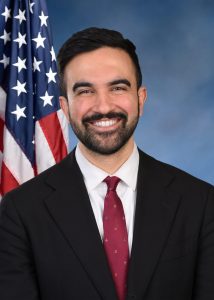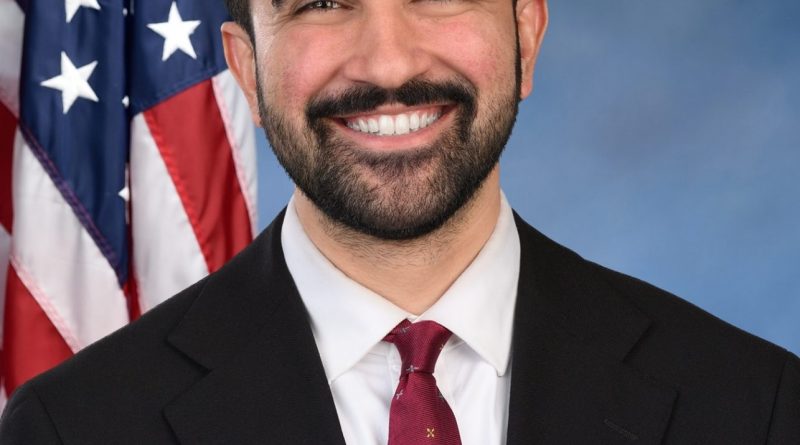The Real Cost of Free
Michael King
Staff Writer

When you delve into the history books, you find that Socialism reemerges every three decades or so for some reason that still evades me, but here we are again. Democratic Socialist Zohran Mamdani’s meteoric rise has been capped off by a decisive election win, in which he beat disgraced former New York governor Andrew Cuomo and Barnacle Boy. Great. What is next for Zohran’s vision of the Big Apple? Well, everyone will supposedly get their fair bite!
On the agenda is rent cancellation, fare-free transit, and city-run grocery stores. In typical progressive fashion, this sounds wonderful on paper. Those greedy conservatives on the right will fire back with “Well, who’s going to fund all of that? Nothing is free!” To which Mamdani shouts back, “By taxing the rich, the rich will pay for it!” It’s a brilliant move, if you don’t think about it for more than 5 seconds. Ignoring the fact that moving the corporate tax rate from 7.5% to 11.5%, or increasing 7-figure earners’ taxes, is in the hands of Albany and not City Hall, which Mother Hochul has already said is a no-go, but let’s focus on the slogan “taxing the rich,” which is the political equivalent of stamping a giant poster onto your forehead that reads, in bold, underlined, and with arrows pointing and stars next to it, “I don’t understand how money actually works.”
Mamdani assumes there are manageable income streams to tax, or giant piles of hidden money sitting in Wall Street’s basement, when in fact, wealth is dynamic and constantly changing. Let me highlight what wealth actually looks like, using a real-world example of a singular individual, Elon Musk. Who has become the big bad wolf for progressive politics. He actually has a salary that is less than yours or mine. He earns a salary of $0; he receives no paycheck, no yearly income that can be taxed like a normal employee. It’s concentrated in innovation, company stakes, investment portfolios, hedge funds, and more. A similar allocation is used by a vast majority of the top 1%. Alright, fine, so there’s no income to tax, but these grocery stores aren’t going to pay for themselves, so we’ll go after Musk’s half-a-trillion-dollar net worth, perfect, which is entirely possible if the goal is to experience an economic recession, massive market downturns, and huge unemployment rates.
Musk’s net worth is tied up in equity stakes in Tesla, SpaceX, xAI, X, and his mind control experiments, I mean, Neuralink experiments. In practice, forcing him to sell a portion of it every year to pay his “fair share” would require him to liquidate a substantial portion of his holdings. This means gutting his companies, where all those unrealized gains are concentrated, dumping shares, driving down stock prices, and destabilizing companies that employ hundreds of thousands of people. Wealth in capitalist economies is productive capital; it’s not sitting idle, it’s working. It’s funding factories, technology, logistics, R&D, employee salaries, 401(k)s, and healthcare plans. Gutting this would hurt the very low- and middle-class individuals that progressives like Mamdani are supposedly trying to protect. When we say “tax the rich,” the question is, what, exactly, are you taxing?
If you pursue income, there’s not much to be gained.
If you go after assets, you destroy industries.
If you pursue unrealized gains, you risk collapsing people’s entire livelihoods.
Mamdani and much of his ideological foundation assume that wealth is a zero-sum game, implying that financial success must come at the expense of or exploitation of someone else. Wealth doesn’t work that way, Tesla, SpaceX, and xAI aren’t parasites on the working class; they employ them. Musk isn’t sitting atop a giant pile of doge coins; his wealth is inseparable from the thousands of engineers, technicians, designers, and factory workers who make his companies run. In fact, a weird twist of fate has it that his wealth generates more employment, technological advancement, and taxable revenue than any of Mamdani’s proposed socialist programs would, ten times over. This isn’t moral posturing; it’s just math.
This ties directly into the broader misconception behind the “tax the rich” slogan. 99% of the “wealth” that is concentrated in the top 1% is not sitting idle in personal vaults or hoarded in bank accounts. It’s largely productive capital, tied up in enterprises, technologies, and investments that better society. These assets support millions of employees, supply chains, pension funds, and healthcare systems. If Musk’s net worth drops or rises, it’s because Tesla’s stock value fluctuates. That’s not exploitation; that’s participation. This is the fundamental truth that progressives miss. Wealth in a capitalist system isn’t just owned, it’s active. It moves, adapts, and rewards human initiative. People innovate, create, and take risks when they know they’ll be rewarded for doing so. Mamdani’s brand of politics, on the other hand, assumes that governments and bureaucrats can allocate resources more efficiently than the very people whose ambition drives the system forward. But when you try to replace individual incentives with central planning, you run into a wall that’s as old as Socialism itself.
That wall is what economists like Ludwig von Mises famously referred to as the economic calculation problem. When the state assumes control over production and pricing, as Mamdani proposes with his city-run housing, fare-free transit, and government grocery stores, it eliminates the market signals, namely, supply and demand, that govern smart decision-making. Prices, even unfair prices, aren’t just numbers; they’re information. They tell us what people want, what’s scarce, and what’s sustainable. Without that system, who decides how much bread to stock, how many employees to hire, or which neighborhoods need more buses? City officials would be working off estimates and ideology, not actual consumer behavior. The result isn’t “fairness”; it’s inefficiency, empty shelves in one district, and buses running half-empty while other routes overflow. The same logic applies to rent cancellation and public housing: without prices to reflect demand, there’s no way to know where to build, what’s affordable, or what resources are actually needed.
Those policies are supposed to be funded by the very same people Mamdani casts as bourgie and evil. If you impose sweeping taxes or strangle the top 1% with bureaucratic red tape, and expect the same people you vilify to fund it all, you’ve got it entirely backwards. Capital is fluid and mobile, and if productivity isn’t rewarded, it will innovate elsewhere. And when it leaves, the very programs meant to help the working class collapse. You can’t redistribute the wealth that you’ve scared out of the city. Mamdani’s “progressive sequel” will play out like most sequels do: over-budget, under-written, and completely missing the point of what made the original so great.
Contact Michael @ kingmic1@shu.edu

